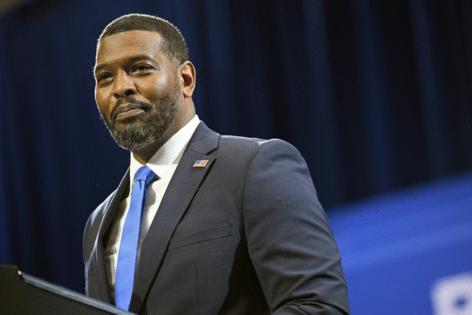Biden administration grants key waiver for California auto rules, EV mandate
Published in Business News
WASHINGTON — The Biden administration finalized a decision Wednesday allowing California to enact influential and long-planned vehicle emissions regulations that set an effective 100% electric vehicle requirement for one-third of the U.S. auto market by 2035.
The regulations — if they survive the significant administrative and legal challenges to come — could serve as a powerful bulwark against incoming President Donald Trump and his repeated vows to unwind Biden-era policies that promote an industry-wide transition to EVs.
The U.S. Environmental Protection Agency, which used its federal authority to give California permission for the new rules, had been preparing for years to make the move in a way that it said would be "durable" against the already-mounting number of lawsuits.
“California has longstanding authority to request waivers from EPA to protect its residents from dangerous air pollution coming from mobile sources like cars and trucks,”said EPA Administrator Michael S. Regan. “Today’s actions follow through on EPA’s commitment to partner with states to reduce emissions and act on the threat of climate change.”
The California regulations have implications well beyond the Golden State. Currently, 11 states and the District of Columbia have vowed to adopt California's new rules, known as Advanced Clean Cars II. Those states and D.C. collectively include about one-third of the U.S. population.
States could try to back out of those commitments, though, as Virginia has previously announced it will do under Republican Gov. Glenn Youngkin.
“This was an expected development. And we expect President Trump will revoke the waiver in 2025," said John Bozzella, president and CEO of the Alliance for Automotive Innovation, a leading auto lobbying group.
He added: “We’ve said the country should have a single, national standard to reduce carbon in transportation, but the question about the general authority of California to establish a vehicle emissions program — and for other states to follow that program — is ultimately something for policymakers and the courts to sort out."
Oil and gas groups decried the Biden administration's decision, while environmental groups cheered the move.
“Contrary to claims on the campaign trail that they would never tell Americans what kinds of cars we have to drive, the Biden-Harris EPA just did exactly that by greenlighting California’s ban on sales of all new gas and traditional hybrid vehicles," said Chet Thompson, president and CEO of American Fuel & Petrochemical Manufacturers.
"EPA’s authorization of the California ban and California’s ban itself are unlawful," he continued. "These policies will harm consumers — millions of whom don’t even live in California — by taking away their ability to buy new gas cars in their home states and raising vehicle and transportation costs."
Kathy Harris, director of the Natural Resource Defense Council's clean vehicles program, pushed back on the claim that the waiver is unlawful.
“Given California’s extreme air pollution woes, Congress recognized the state’s ability to set stronger standards for vehicles back when Lyndon Johnson was president. The state has been using this authority to help spur innovation and save lives for 57 years," she said.
Harris continued: “These waivers allow California — and states that chose to align with it — to curb the pollution spewing from tailpipes and address the impacts of the climate crisis. ... This is exactly how our system of federalism should work. If other states don’t like California’s approach, they don’t need to follow it. But no one should object to the longstanding authority of states to act to protect their residents.”
General Motors Co., which has invested significantly in building out its electric vehicle offerings, did not outright support or oppose the EPA's move.
"GM supports efforts to realign zero emissions vehicle targets so they better reflect current consumer demand," the automaker said in an email sent by spokesperson Bill Grotz to The Detroit News. "We’ll continue to collaborate with California and other state adopters of its ZEV program to find the right path forward.”
Ford Motor Co. declined to comment, and Stellantis NV did not immediately respond to a request from The News.
Toyota Motor Corp., the top-selling auto brand in the United States and a pioneer in gas-electric hybrid vehicles like the Prius, criticized the new regulations. The Japanese automaker has been slower than others to develop fully battery-electric vehicles, potentially leaving it more vulnerable to the rules' explicit requirement for more sales of BEVs and plug-in hybrid models.
"Over the past five years, Toyota has reduced more greenhouse gas emissions from new vehicles than any other automaker thanks to our full portfolio of electrified vehicles," the company said in an emailed statement.
It continued: "By requiring one out of three sales be zero-emission vehicles, California's regulation undercuts the sale of other alternative electrified powertrains that can also help reduce carbon emissions as much as and as quickly as possible.
"In addition, to achieve the California mandate, it would require dealers selling over three times as many ZEVs as they currently do. If a customer cannot afford a zero-emission vehicle or it doesn't meet their needs, there may not be a non-electric vehicle on the lot to purchase for their mobility needs.
"Instead of adjusting to that reality, California is doubling down and pulling 11 other states and their residents with them."
©2024 www.detroitnews.com. Visit at detroitnews.com. Distributed by Tribune Content Agency, LLC.












Comments